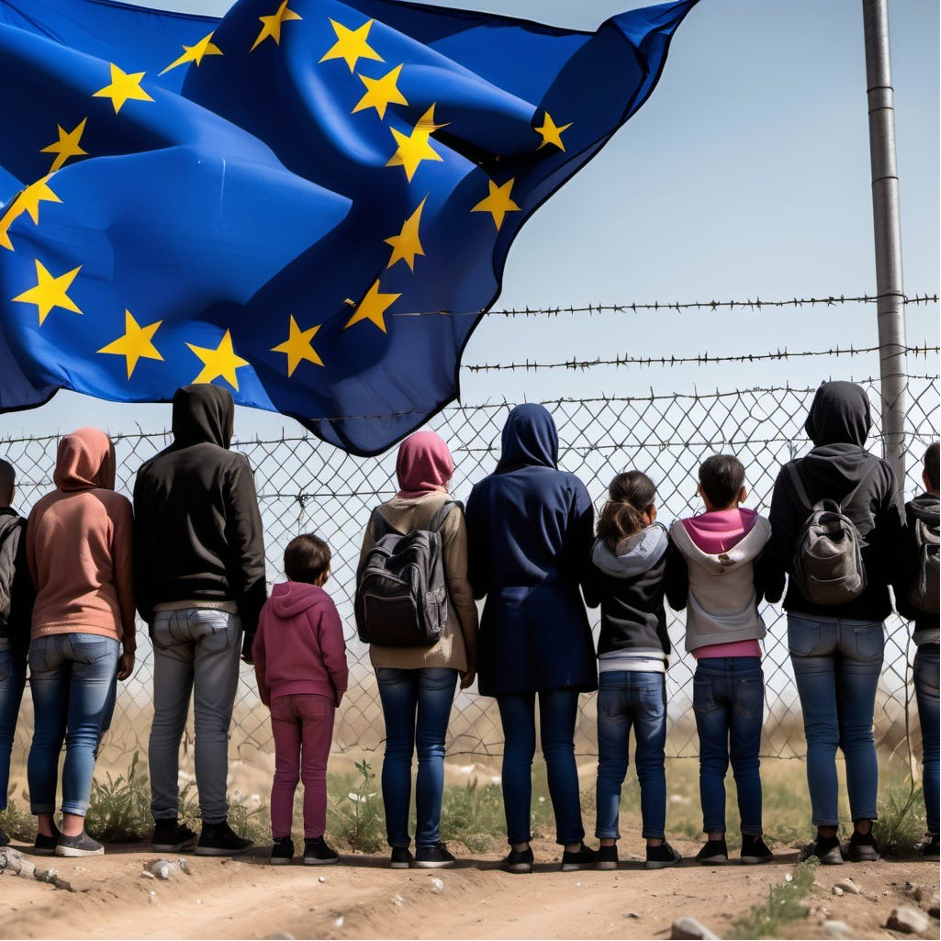NOTE: You can now listen to these posts in the Substack app. Tap the play icon at the top right of the screen on a post.
Last week’s post on integration sparked some debate on Facebook about the terms “expat” and “immigrant.” The usual distinction is that an expat’s stay is voluntary and often temporary, while an immigrant’s may be less voluntary and is usually permanent. Yet the categories blur. Do expats who buy a bike trailer and start cursing in Danish qualify as immigrants?
Although people arrive under various circumstances, all foreigners in Denmark face similar hurdles—language, social codes, official forms with myriad checkboxes. How steep those hurdles feel depends on their legal status. Here’s an overview, on a scale from voluntary to “forced” (courtesy ChatGPT):
Two types of expat
The classic expat is the corporate transferee who expects a short stay, works in English, lives in a cosmopolitan enclave, and sends the kids to an international school. That’s not the type I had in mind when suggesting that some Americans consider Denmark. I was pitching people curious enough to test the culture, start learning Danish, and decide whether to stay.
Parallel or skewed societies?
The integration policy debate focuses on people with a “non-Western background,” mainly from the Middle East, North Africa, Pakistan, and Turkey (MENAPT—a euphemism for “Muslim-majority” countries). Many issues involve their children born in Denmark—second- or third-generation citizens who speak fluent Danish but remain labeled immigrants.
First-generation migrants seeking work or refugees fleeing oppression are often motivated to assimilate, knowing life here beats life back home. Their children may feel ambivalent, straddling two cultures and feeling excluded from both.
Integration problems concern mostly boys and young men struggling in the sedentary school system and unemployment, as well as older men who cling to traditional controls on their wives and daughters. The Ghetto Law imposes a cost on immigrant parents by breaking up their communities for the possible benefit of greater social mobility for their descendants.
Drawbridge to happiness
The cruel irony of integration challenges is that they stem from the very factors that make Danes the “second-happiest” people alive—safety net, universal health care, free university, long vacations, trust in institutions. These features produce a cohesive society with a cultural identity and clear norms—so cohesive that they create a barrier to entry.
The downside of Danish ”life satisfaction” can be conventionality, complacency, self-satisfaction, parochialism, and skepticism toward outsiders. The latter can result in a lack of interest and empathy, if not antipathy, for foreigners, especially if they don’t seem to appreciate the generosity of the Danish state (a complaint that has also been leveled at Greenlanders).
Same maze, different stakes
While they face many of the same obstacles, Western expats and ethnic immigrants adapt on different premises.
Western professionals, with the advantages of education and ethnic similarity, don’t even need to integrate. Participating in Danish customs and becoming partly Danish are optional. If they don’t make Danish friends, they can socialize in the expat bubble. If they’re fairly young and childless, they can move elsewhere relatively easily.
For MENAPT immigrants, some integration is necessary, at least in the labor market. They need to speak Danish, interact with coworkers, and steer their children through the educational and social services institutions. If they struggle with communication or understanding their “rights and obligations,” or feel they’re being treated unfairly or disrespectfully, they have no choice but to keep trying or to lower their expectations. The stakes are higher, and the options are fewer.
Musical chairs in Parliament
The political debate has taken a fresh turn. As Erik Holstein explains in Altinget, asylum numbers are low, yet MENAPT immigration for work and study is at its highest since 2001 (except for 2015–16).
While Morten Messerschmidt of the Danish People’s Party faults the government for leniency, his right-wing allies now favor more immigration to boost the labor market. The governing Social Democrats maintain their cautious stance, warning of “cultural consequences.” Immigration Minister Kaare Dybvad Bek framed it starkly: “Is Denmark a bazaar or a homeland?” Party platforms for the next election will likely pivot on that question.
White-collar refugees
The idea that Americans might find political refuge here became more tangible for me this past week. After seeing reports of border agents at US airports detaining citizens and inspecting phones for anti-Trump posts, among other things, I decided, like many Europeans, to cancel a trip to the US instead of scrubbing my social media and biometrics. Am I now a political exile?
Denmark has floated fast-track visas for American academics who are losing funding and feeling threatened. Could we see a brain drain of scientists fleeing oppression in the nation of immigrants to countries it has protected since the Cold War—a miniature reversal of the 20th-century flight from fascism in Europe?
That same protection enabled the Continent, in its martial complacency, to cultivate the social security and orderly civic debate now lacking in the US. At certain junctures, history’s ironies can become glaring.
So, bazaar or homeland? For newcomers, it can feel like both: an open market of opportunities and a gated community of unwritten rules. The entry fee is patience, passable Danish, and enough resilience to endure politicians’ and bureaucrats’ deliberations.








Seems absurd that they would consider trying to specially attract US citizens as in my experience these are the least likely to be attracted to the Danish offer and most likely to spend the next years complaining about almost everything. Not saying they don't have things to complain about, nor am I saying they are right or wrong to find the Danish "offer" unappealing. But I've tried on many occasions to get US citizens to join me and always failed.